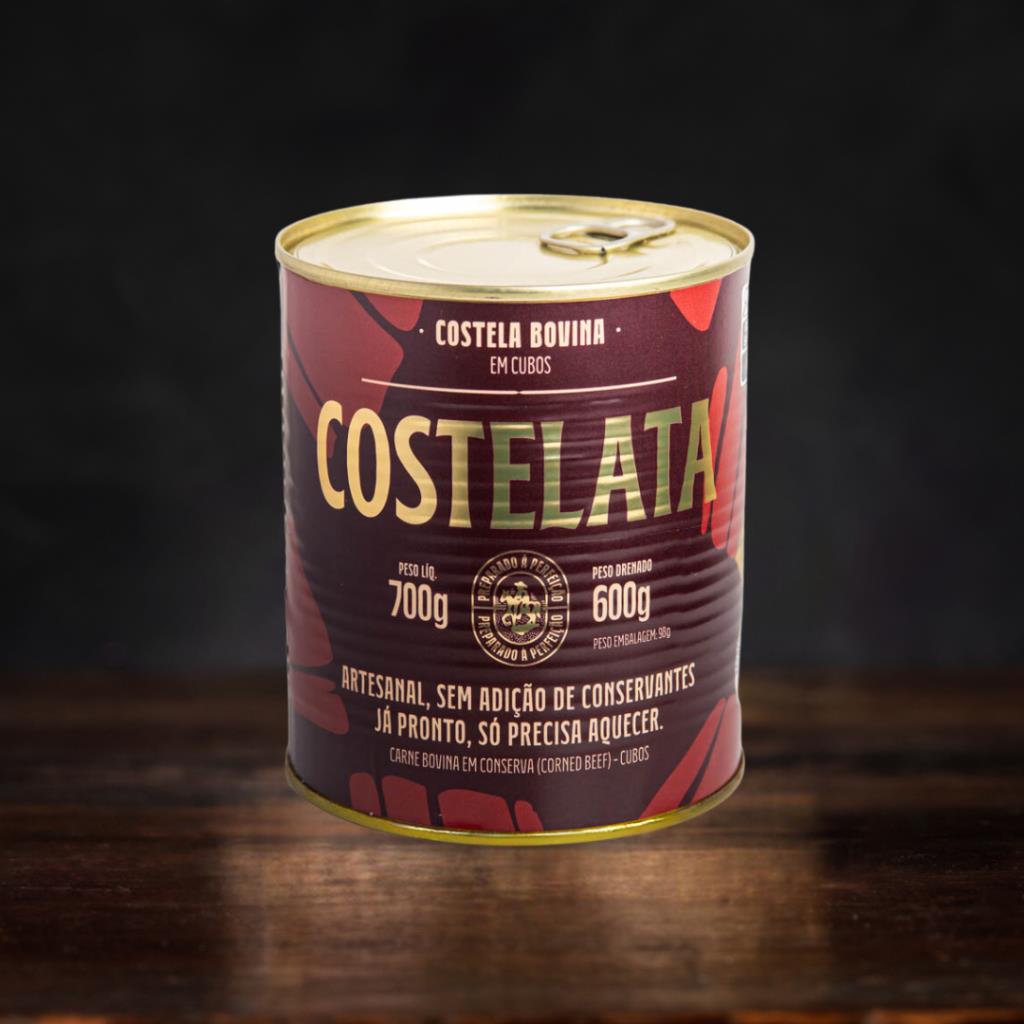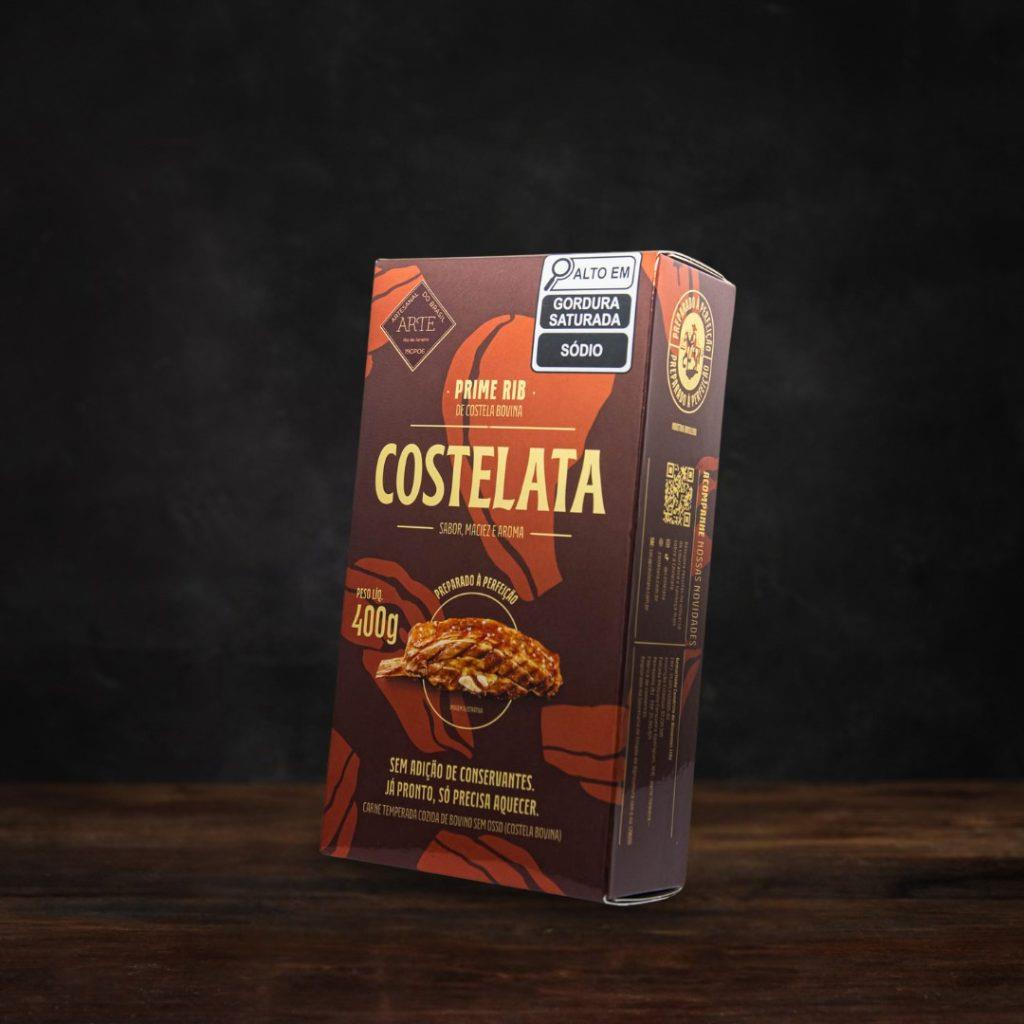
Costelata To Supply Arab Market
“Costelata was born halal-not in terms of certification, which is the formal recognition of it, but in terms of philosophy-because halal is linked to ethics and purity, and Costelata's project was created precisely from a tradition of preserving beef without chemicals and in a natural way,” said one of the company's founders and investors, lawyer Fernando Fernandes, in an interview with ANBA.
Costelata 's product is beef preserved in its own fat inside a can, with no need for refrigeration, chemicals, or preservatives. It was developed after six years of research by chef Charles Chiapetti, who founded Costelata along with Fernandes. Inspired by a traditional practice from the state of Minas Gerais, the product ultimately became a gourmet food.

Canned ribs sold in the Brazilian retail market
Costelata was founded in 2020 after a meeting between Chiapetti and Fernandes. They were later joined by Isabella Fernandes-now the company's CEO and cofounder-who has a background in business. The company first started as a startup in a small production unit in the Itaipava district of Petrópolis, Rio de Janeiro state, and launched its product on the Brazilian market in early 2024.
After just a few months of selling its canned ribs, the company began supplying the food service sector and also developed shredded rib meat-a major leap for the business.“Now we sell it to restaurants, hotels, and distributors, and they asked us to develop this product but shredded. When we launched it to the market in October last year, within two to three months, the company grew by more than 3,000%,” says Isabella.
Originally conceived as a food solution for the armed forces or remote locations, Costelata's meats eventually found their place in the premium market. The first factory, initially opened, remains in operation, but the company now has a larger plant in the city of Três Rios, Rio de Janeiro state. This is the facility currently being certified as halal by the FAMBRAS Halal Certifier.
For the retail market, Costelata currently supplies canned beef ribs in 400 g and 700 g formats, as well as prime ribs in vacuum-sealed packs processed through the same autoclave system used for the canned version, in 400 g and 800 g portions. For the food service sector, the company offers shredded beef ribs, shredded jerked beef, and prime rib in packs, along with options such as beef ribs, shredded chicken, and others - in frozen form.

Ribs in a box: Premium packaging
Regarding the frozen products, Isabella explains that the market is still very accustomed to using them that way, but many places are now opening up to the possibility of autoclaved meat after trying Costelata's product.
At the moment, Costelata is also developing the packaged meals ordered by the Arab fund. In addition to the beef, the dishes may include other foods such as rice and chickpeas, for example. The grains are expected to come from Brazilian family farming.“It's a source of pride that Costelata, through the halal project, can also help fight hunger in the world,” says Fernandes, since the products will be destined for humanitarian aid. The product will be halal.
This supply is expected to mark Costelata's entry into exports, but the company has ambitious plans for the international market.“We'll take this first step in February 2026 to understand how the export market works, but we've already identified the other products we're going to offer, and the plan is to really focus on exports in 2026,” says CEO Isabella.
The company also sees potential to sell its canned ribs abroad.“As it is today, the product would have very easy penetration in Asian markets because there's already a strong culture of consuming canned goods there,” says Isabella. She notes that countries like Japan and South Korea have high rib consumption.“We see that our product has great potential,” the CEO adds, also mentioning promising markets such as Europe and the United States, where there is strong appreciation for premium products.
Other ongoing changes at Costelata include preparations to transition from a limited liability company to a corporation, opening the door to outside investment. Fernandes notes that all the company's funding so far has come from its own capital, without loans. From just 11 employees in 2024, Costelata has now grown to over 100 team members. Its products are available in 11 Brazilian states.
Read more:
Brazilian beef: Six Arab nations among top buyers
Translated by Guilherme Miranda
Supplied/CostelataCanned ribs sold in the Brazilian retail marketSupplied/CostelataThe post Costelata to supply Arab market appeared first on ANBA News Agency.
.jpg)
Legal Disclaimer:
MENAFN provides the
information “as is” without warranty of any kind. We do not accept
any responsibility or liability for the accuracy, content, images,
videos, licenses, completeness, legality, or reliability of the information
contained in this article. If you have any complaints or copyright
issues related to this article, kindly contact the provider above.
















Comments
No comment